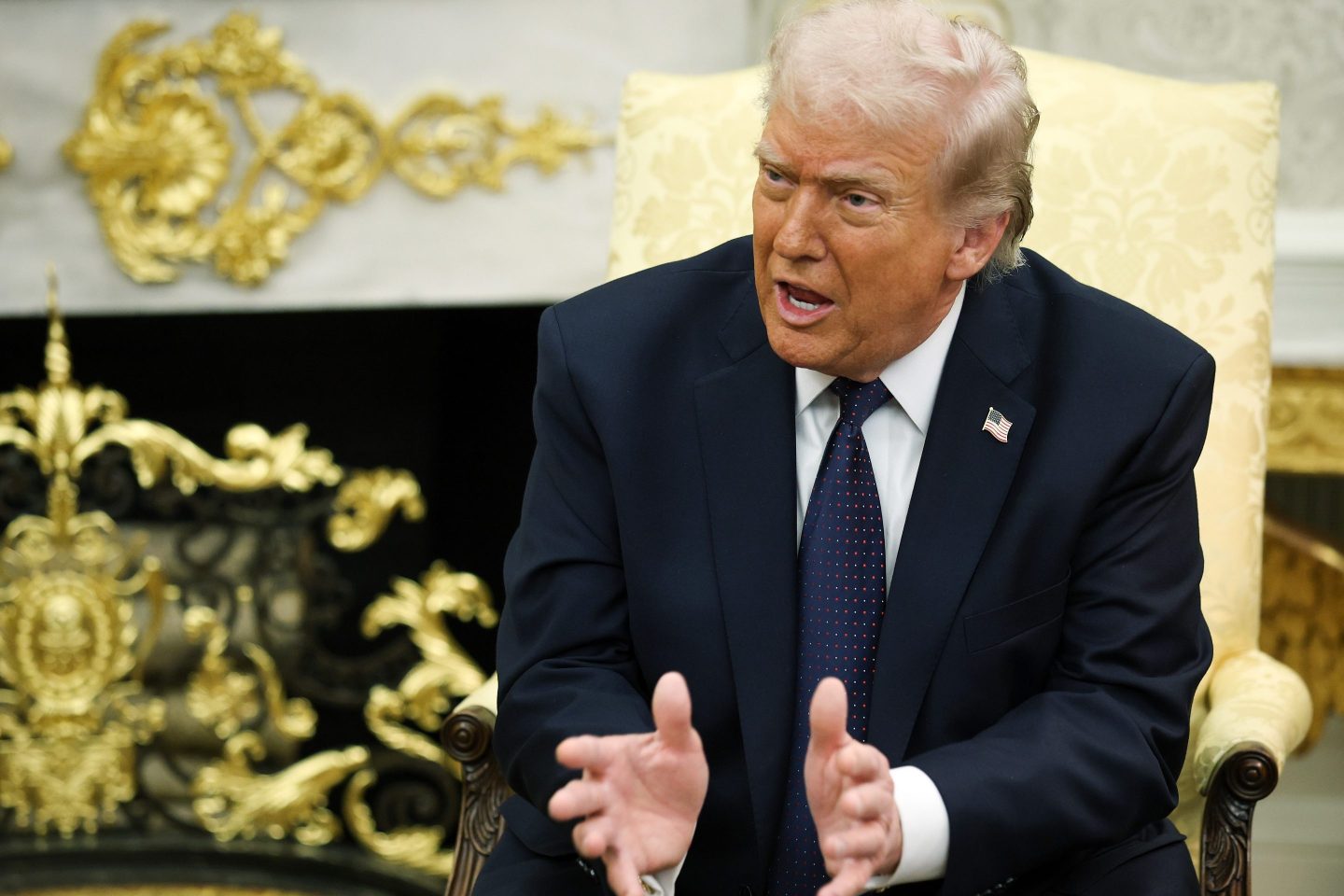Last week I published a feature story online, “The Siege of State Farm,” attempting to encapsulate the extraordinary, multifaceted assault upon State Farm and the insurance industry that was mounted by plaintiffs lawyer Richard F. “Dickie” Scruggs in the wake of Hurricane Katrina. (The story will appear in the May 5 issue of Fortune, which is also the annual Fortune 500 edition.)
In the process of trimming that article to a length that non-Scruggsiana-fanatics might find digestible and that the magazine’s post-dotcom advertising budget could pay for, I omitted some important points. In this post I’ll mention a couple. (This post is for readers who have either already read that feature or have been following the saga closely.)
To begin with, my feature did not include reference to the then-latest breaking news, which was the April 4 order of U.S. District Judge L.T. Senter, Jr., disqualifying all of Scruggs’ former Scruggs Katrina Group (SKG) co-counsel from any continuing involvement in Mississippi policyholder litigation against State Farm; disqualifying Scruggs’ former State Farm “insiders” – claims adjusters Cori and Kerri Rigsby – from testifying in any of those cases (there are about 180 of them); and forbidding any law firm from introducing into evidence in those cases any document obtained by the Rigsby sisters by means of their insider status, rather than by means of ordinary discovery processes. (See WSJ law blog post.)
Judge Senter did so, he wrote, because he found that the SKG lawyers had been aware of and acquiesced in Scruggs’ decision to have SKG pay the Rigsbys $150,000-a-year salaries as “consultants,” notwithstanding their status as fact witnesses. As I mentioned in the feature, it’s illegal to pay fact witnesses for their testimony, though it’s okay to pay expert witnesses and consultants. Judge Senter concluded that the Rigsbys’ consultancy arrangement with Scruggs was a “sham.” (Scruggs’ law firm withdrew from SKG shortly after Scruggs’ indictment last November, prompting the group to change its name to Katrina Litigation Group, or KLG.)
Since then, the disqualification snowball has continued to roll, and it is likely to reach still more lawyers and cases in the coming days. Last Friday another federal judge in the Southern District of Mississippi disqualified the SKG/KLG lawyers in another case against State Farm, as reported by David Rossmiller here.
This week, a ruling is expected on State Farm’s motion to disqualify the SKG/KLG lawyers in a civil RICO case against State Farm that SKG filed last June, where U.S. District Judge William H. Barbour, Jr., also of the Southern District of Mississippi, is presiding. It’s hard to imagine an inconsistent outcome there. [UPDATE: Barbour, in fact, disqualified the SKG/KLG lawyers and the Rigsbys, in an order tracking Judge Senter’s, on April 16.]
In addition, State Farm also moved last week to disqualify Scruggs’ co-counsel in the federal False Claims Act case (or whistleblower lawsuit) he had brought against the insurer on behalf of the Rigsbys alleging fraud on the National Flood Insurance Program. (See Rossmiller posts here and here.) The attorneys whose disqualification is being sought there (who were not SKG/KLG lawyers) include former U.S. Attorney for the Western District of Missouri Todd Graves and his firm, Graves Bartle & Marcus of Kansas City, Mo., and former Missouri Supreme Court Chief Justice Edward (Chip) Robertson, Jr. of Bartimus, Frickleton, Robertson & Gorny of Jefferson City, Mo.
In the whistleblower case, State Farm alleges that these law firms acquiesced or participated in the Rigsbys’ alleged violations of the Computer Fraud and Abuse Act, which forbids unauthorized intrusions into password-protected databases. In a deposition last November, Cori Rigsby acknowledged that, on at least one occasion in March or April of 2006, when she and Kerri were meeting with lawyers from Scruggs’ firm and these co-counsel firms in Scruggs’ trailer office in Pascagoula, Cori accessed the State Farm database using her State Farm laptop. “I’m not sure which documents he retrieved,” Cori said of Anthony DeWitt, an associate at Bartimus Frickleton, whom she said she was working with. “I let him in the computer and I can’t speak after that.”
Neither DeWitt nor BFRG partner Robertson returned messages I left for them April 9, nor did partner Graves of the GBM firm. In a court filing April 10, the two firms said they plan to “vigorously contest” State Farm’s disqualification motion, and asserted that it “is based upon the misguided premise that GBM and BFRG are vicariously responsible . . . for acts about which they had no or incomplete knowledge, and did not in any way direct.” (If they plan to contradict Cori’s testimony in any way, however, that, in itself, might put them in a conflict situation, requiring disqualification.)
Perhaps the most important new motion filed last week, however, was the counterclaim filed by State Farm seeking a damage award against the Rigsbys for alleged violations of the federal Computer Fraud and Abuse Act (and some Mississippi laws, too). If the Rigsbys have not yet been entirely forthcoming and candid about Scruggs’ involvement in some of their more controversial actions during the litigation – for instance, the so-called data dump of early June 2006, in which the Rigsbys downloaded some 6,000 pages of documents from State Farm’s database – the State Farm counterclaim puts added pressure on them to abandon any lingering loyalty to Scruggs in favor of saving their own skins by implicating him. The allure of doing so might also become more enticing to them if, after a successful disqualification motion, they find themselves represented by lawyers free of any past social or pecuniary ties to Scruggs.
That leads me to one last point about Scruggs-tainted lawyers. From a national perspective, the two most important Scruggs allies in this whole escapade are the ones who, prior to Scruggs’ indictment, were both being bruited about as possible candidates for Trent Lott’s former U.S. Senate seat, if not higher office still. One is Mississippi Attorney General Jim Hood, whose de facto alliance with Scruggs in the assault on State Farm has long been front-and-center, but the other is former Mississippi Attorney General Mike Moore, whose role has been lower key. Partly, this is because Moore has played his public-relations cards more deftly. He quietly withdrew from Scruggs’ campaign in January 2008, fairly soon after everything began hitting the fan.
Moore’s multifaceted role in the siege of State Farm is one of the most eye-popping, because it is impossible to say with certainty precisely who he was representing much of the time. He seems to have taken the view that what was good for Scruggs’ private clients was good for Mississippi, and he flitted from representing one to the other without giving the matter much thought. (Moore did not respond to repeated phone and e-mail messages seeking his cooperation on my feature story, so I am basing my understanding of his understanding of his role on this declaration he submitted in court in January 2008.)
At the end of 2006, when State Farm was simultaneously trying to negotiate resolutions of Hood’s civil case, Hood’s criminal inquiry, and a class-action being brought by the SKG lawyers, Moore served as a “facilitator” between all the parties on all three matters, he says in his declaration. Others present at these negotiations remember Moore describing himself at the time as “resolution counsel.” These terms make it sound like Moore was a neutral mediator of some sort. But that was not State Farm’s understanding. Its lawyers say they understood Moore to be Hood’s agent in the negotiations, not a neutral. Moore also acknowledges in his affidavit that he was, from time to time, offering Hood “advice and assistance” on his criminal inquiry of State Farm (although he didn’t actually sit in on any grand jury proceedings), which certainly helps explain why State Farm may not have seen him as neutral.
One way to find out who someone represents is to ask him how he’s getting paid. At a meeting in January 2007 deputy insurance commissioner David Lee Harrell did ask Moore that question, and Moore replied cryptically that he got “paid at the end of the day,” according to Harrell’s later deposition testimony.
In his January 2008 affidavit Moore neither confirmed nor denied having been asked that question or having given that answer. Instead, he offered this carefully worded, non-denial denial of Harrell’s testimony: “I have not received nor do I have any agreement to receive any compensation from any source as a result of my involvement as a facilitator.” Note that Moore does not say whether he had any expectation of receiving compensation.
In March 2007, the class-action settlement Moore facilitated fell apart. In June 2007 Moore entered an appearance as co-counsel for the plaintiffs in one of SKG’s key civil cases, McIntosh v. State Farm. Though Moore was never a formal member of the SKG joint venture, Cori Rigsby testified in November 2007 that she regarded Moore as a member of the SKG team. In his January 2008 affidavit – submitted after State Farm moved to disqualify Moore and the SKG/KLG lawyers in the McIntosh case – Moore wrote that because the McIntosh case involved “the most egregious conduct by State Farm, . . . I accepted the offer to be involved in the case and to have [sic] offered to do so on a pro bono basis.”
While indignantly denying any improprieties, Moore voluntarily moved to withdraw from McIntosh the same day he filed his declaration. Since his motion was granted, he successfully avoided the embarrassment of being included in Judge Senter’s April 4 disqualification order. Whether he successfully dodged political taint is another question.











